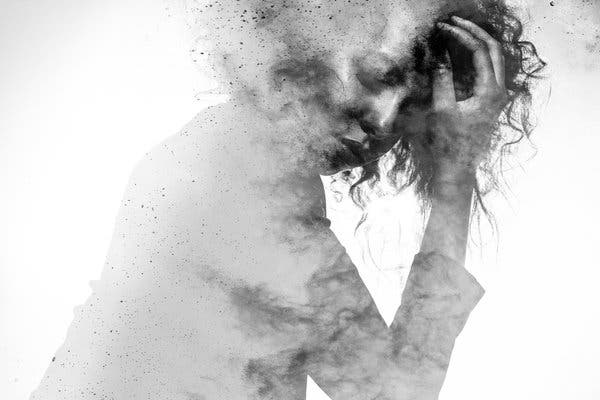Culture | April 26th, 2021
The Reality of Hair Depression For Black Women
By: Erika Pierre

The topic of Black women and depression is anything but new. For years, Black women have tipped the scale for experiencing higher rates of depression than their white female or Black male counterparts. Now, a new topic of depression has emerged in the discussion on the intersection between Black women and mental health on the internet.
we need to talk about & normalize hair depression for black girls. not being able to take care of yourself & your hair properly because you’re emotionally exhausted/drained is very much a thing.
— jas (@jasminemarie___) March 7, 2021
hair depression is a thing…a real life thing
— SODASH (@_VivaLaCole) March 15, 2021
Ebere Oha, a psychology major at Alabama A&M University (a historically Black institution), joined the discussion tweeting, “I don’t care what anyone says hair depression is a real thing for Black girls.”
I don’t care what anyone says hair depression is a real thing for Black girls
— ebereeee_🇳🇬 (@eberelovesyou) March 7, 2021
Entangling self-love with hair has always been deeply embedded in Black culture. Whether it is relaxed, straightened, or natural, Black girls use their hair to express themselves. But, what about their hair is not styled? For many Black women, an overwhelming feeling of not wanting to be seen or be productive rises to the surface.
Hair depression is a cultural phenomenon that is only understood through proximity to Black culture. There is a deeper root to the issue at hand when it comes to the relation between hair and the identity of a Black woman.
“I would say hair depression has affected me by not feeling my best. At times, when I’m looking in the mirror I’ll be like I need my hair done and have anxiety that people are staring at me,” Oha says. “I feel like hair depression is a real thing because with Black women and girls, we know that our hair is everything and this might sound crazy but we have an emotional tie to our hair. I’ve gotten frustrated and felt like crying when my hair wouldn’t cooperate with me. I know other Black girls that have had a full-on meltdown because of it.”
Dr. Afiya Mbilishaka, a clinical psychologist and hairstylist, uses hair as an entry point to mental health also known as ‘psychohairpy.’ Mbilishaka travels to different hair salons and barbers to teach hairstylists to not only care for their hair but also their actual mental health. “I teach the stylist active listening. What happens in the salon is that people usually open up more. Stress really shows in hair.” Her mission is to connect our community to the mental health support we deserve and desire surrounding our hair care experience.
Mbilshaka breaks down the different possible causes of hair depression. “There’s a mismatch between how they want to look and how they are actually looking at that moment. People can have multiple reasons for that response.”
In her book, “Post Traumatic Slave Syndrome,” Joy DeGruy explores in depth the concept of vacant esteem where society instilled a low sense of self-worth, hopelessness and depression into the African American community. Black women will often value themselves based on their appearance. Society instructs Black women that they might not have value or worth if they don’t look a certain way, which also bolsters the thinking that we must wear weaves to attain a certain level of appeal.
“I think getting our hair done is a ritual. In a ritual you are preparing your mind, body, and spirit to receive a blessing,” Mbilishaka says. Through her experience in studying beauty rituals in Africa, she saw from birth to death that people have to wear their hair in a certain hairstyle to achieve a spiritual goal. In Ghana, girls become women once they master a hairstyle and it’s a physical expression to the whole community that they are now women. In certain parts of West Africa, when your hair’s not done, it symbolizes to your community that you need support. Some even go as far as cutting or shaving their hair off so others are forced to look at their head, which is a symbol for their mind or mental health.
Mbilishaka says, “Hair can be this language system that lets other people know how you feel and who you are. So when your hair doesn’t get to look the way you want then you are not communicating to other people how you feel.”






